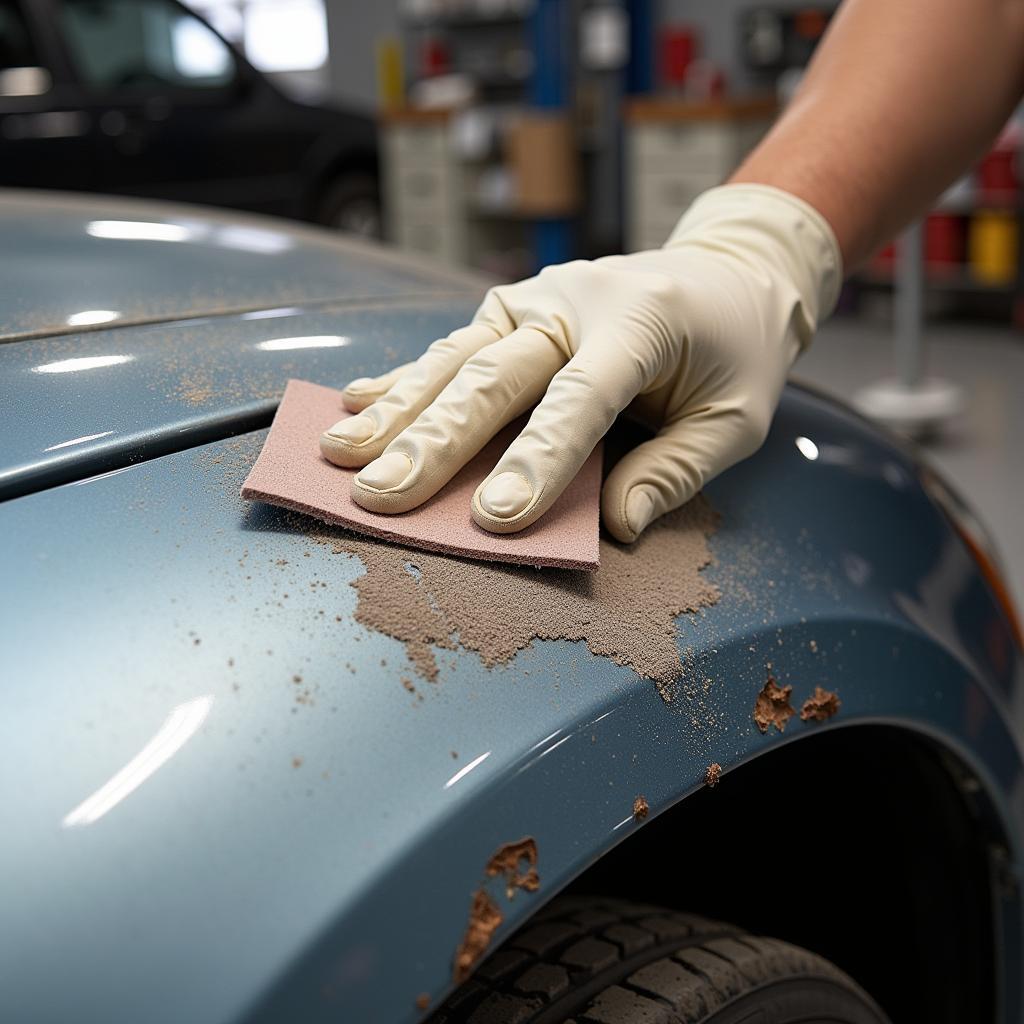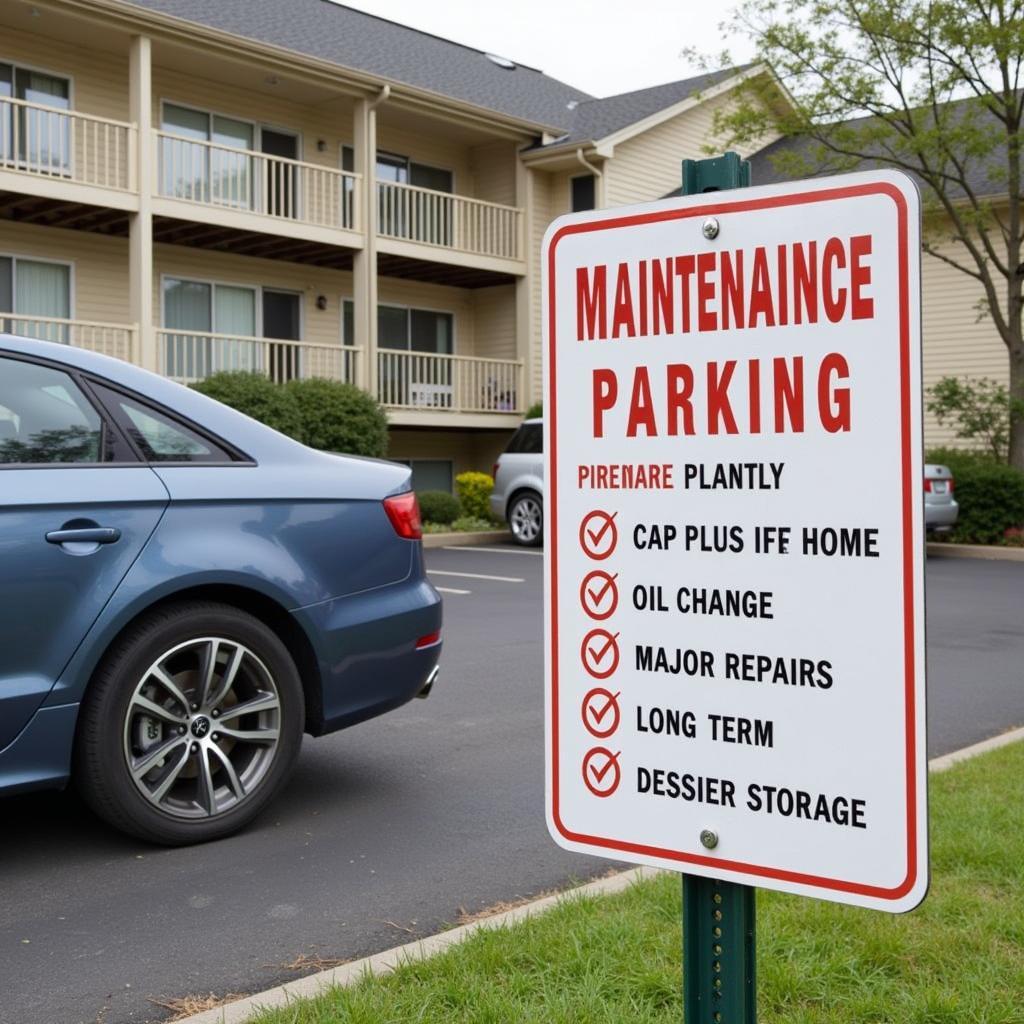Knowing when your car needs maintenance can be a tricky task, especially for car owners who are new to the world of automobile upkeep. It can be overwhelming trying to keep track of every little detail and wondering when something needs attention. But, fret not! This guide will help you understand the basics of car maintenance and how to know what your car needs.
Understanding Your Car’s Maintenance Needs
The best way to know what your car needs is to consult your owner’s manual. This document outlines a specific maintenance schedule tailored to your specific car model. It will specify when certain services need to be performed, such as oil changes, tire rotations, and fluid checks. Following this schedule will help you keep your car running smoothly and prevent potential problems down the road.
Beyond the Owner’s Manual
While your owner’s manual is a great starting point, there are other factors to consider when determining your car’s maintenance needs.
- Driving Habits: If you frequently drive in harsh conditions like extreme heat or cold, or drive on rough roads, your car may require more frequent maintenance. For example, you might need to change your oil more frequently if you frequently drive short distances or in stop-and-go traffic.
- Age and Mileage: As your car gets older and racks up more mileage, it will naturally require more maintenance. Parts wear down over time, and it’s important to stay on top of those potential issues before they become major problems.
- Warning Lights: Don’t ignore warning lights on your dashboard. They are designed to alert you to potential problems that require immediate attention. If a light comes on, it’s best to take your car to a trusted mechanic for a diagnosis.
Common Maintenance Tasks You Should Be Aware Of
Here are some of the most common car maintenance tasks you’ll likely encounter as a car owner:
Oil Change
- Importance: Oil lubricates the moving parts of your engine, preventing wear and tear. Regular oil changes are crucial for keeping your engine healthy and running smoothly.
- Frequency: Most car manufacturers recommend an oil change every 3,000-5,000 miles. However, this can vary depending on your car model and driving habits.
Tire Rotation
- Importance: Tire rotation helps ensure even wear and tear on all your tires. This can prolong the life of your tires and improve your car’s handling and safety.
- Frequency: It’s recommended to rotate your tires every 5,000-7,500 miles.
Fluid Checks
- Importance: Your car uses various fluids to operate properly. These include engine coolant, brake fluid, transmission fluid, and power steering fluid. Regular fluid checks ensure these levels are adequate, preventing problems.
- Frequency: Check your fluids at least once a month or before long trips.
Air Filter Replacement
- Importance: The air filter cleans the air that enters your engine. A dirty air filter can restrict airflow and reduce engine performance.
- Frequency: Replace your air filter every 12,000-15,000 miles or as recommended by your car manufacturer.
Brake Inspection
- Importance: Brakes are a critical safety component. Regular inspections help ensure your brakes are in good working order.
- Frequency: Have your brakes inspected at least once a year or if you notice any unusual noises, vibrations, or changes in braking performance.
Signs Your Car Needs Maintenance
In addition to your car’s maintenance schedule, there are other signs that your car may need attention. Be on the lookout for the following:
- Strange noises: Unusual noises coming from your engine, brakes, or steering system can indicate a problem.
- Fluid leaks: Any fluid leaks under your car should be investigated immediately.
- Dashboard warning lights: As mentioned earlier, pay attention to any warning lights that come on.
- Decreased fuel efficiency: If your car seems to be getting worse gas mileage, it could be a sign of a problem.
- Poor performance: If your car is struggling to accelerate or maintain speed, it could indicate an issue with the engine or transmission.
Professional Help vs DIY Maintenance
There are certain maintenance tasks that can be safely performed at home, like changing your air filter or checking fluids. However, some tasks are best left to professionals. If you’re unsure about a particular task, it’s always best to err on the side of caution and consult a mechanic.
“It’s always better to be safe than sorry. Don’t try to fix something you’re not comfortable with,” says Michael Jones, a certified mechanic with over 15 years of experience.
Taking Control of Your Car’s Maintenance
By understanding your car’s maintenance needs, following your owner’s manual, and being aware of the warning signs, you can keep your car running smoothly for years to come. Remember, regular maintenance is key to preventing major problems and ensuring your car is safe and reliable.
FAQ
Q: How often should I change my car’s oil?
A: Most car manufacturers recommend an oil change every 3,000-5,000 miles. However, this can vary depending on your car model and driving habits. Check your owner’s manual for specific recommendations.
Q: What are some common warning lights on my dashboard?
A: Some common warning lights include the engine light (check engine light), the oil pressure light, the brake light, the battery light, and the tire pressure light. If any of these lights come on, it’s best to take your car to a mechanic for a diagnosis.
Q: How can I save money on car maintenance?
A: There are a few ways to save money on car maintenance. Consider using generic brands for fluids and filters, or buying parts online. You can also try to perform some simple tasks yourself, like changing your oil or air filter.
Q: How do I know if I need new tires?
A: You can check your tires for tread depth by using a tread depth gauge or a penny. If the tread is worn down to the wear bars, it’s time for new tires. You should also inspect your tires for damage or uneven wear.
Q: What should I do if my car makes a strange noise?
A: If your car makes a strange noise, it’s best to take it to a mechanic for a diagnosis. Don’t ignore strange noises, as they could indicate a serious problem.
AutoTipPro can help you with all your car maintenance needs! Contact us today at +1 (641) 206-8880 or visit our office at 500 N St Mary’s St, San Antonio, TX 78205, United States.






Leave a Reply